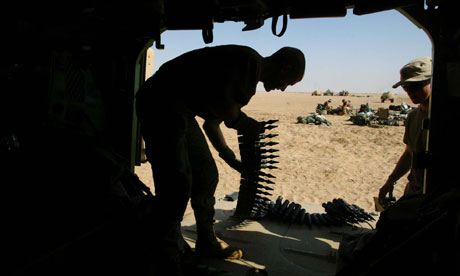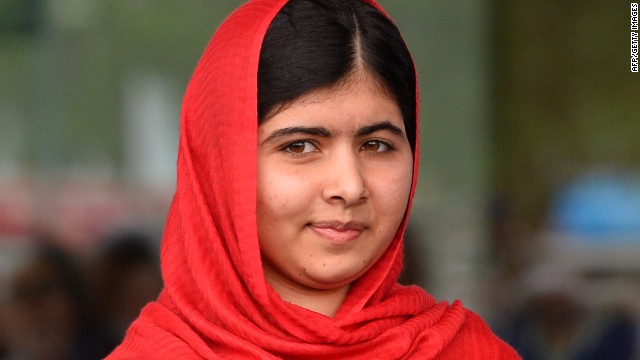An international volunteer organization urged Canadian authorities to arrest former U.S. Vice President Dick Cheney on war crimes charges when he visits the 2013 Toronto Global Forum later this week.
Lawyers Against the War argued in a letter dated Sunday that Toronto Police Chief William Blair and Ontario Attorney General John Gerretsen have a duty to arrest Cheney "as a person suspected on reasonable grounds of authorizing, counseling, aiding, abetting and failing to prevent torture.”
Canadians Seek Dick Cheney's Arrest For War Crimes During Upcoming Visit
US defends drone strikes as 'necessary and just' in face of UN criticism
 The US government has defended its use of drone strikes in Pakistan, Yemen and other countries in front of the UN, telling a chamber full of largely critical nations that in President Obama's view the deployment of unmanned aerial attacks against al-Qaida targets was "necessary, legal and just".
The US government has defended its use of drone strikes in Pakistan, Yemen and other countries in front of the UN, telling a chamber full of largely critical nations that in President Obama's view the deployment of unmanned aerial attacks against al-Qaida targets was "necessary, legal and just".
Representatives from a slew of nations, including Brazil, China and Venezuela, lined up to berate the Obama administration for its intensive use of drone strikes. But the US delegation told a plenary meeting of the general assembly in the UN building in New York the president had taken steps to introduce new guidance and standards, and to set out the legal rationale for unmanned weapons deployed in the fight against al-Qaida and affiliated threats.
What’s in your smartphone? Blood electronics
 Arming militias in a war-torn region of Africa? There’s an app for that.
Arming militias in a war-torn region of Africa? There’s an app for that.
By now, just about everyone has heard of blood diamonds, but you may not know their close cousins: “conflict minerals.” They include metals such as gold, tantalum, tungsten and tin, used to fuel your smartphone’s vibration mode or help maintain your camera’s battery life. In fact, they exist in just about every computer or electronic gadget you own.
They are heavily sourced from the Democratic Republic of the Congo, where warlords control mines and smuggling routes, profiting to the tune of more than $185 million annually by terrorizing locals into extracting the metals for little or no pay.
Nearly 30 million people in slavery: index
 Nearly 30 million people are living in slavery across the globe, many of them men, women and children trafficked by gangs for sex work and unskilled labor, according to a global slavery index released on Thursday.
Nearly 30 million people are living in slavery across the globe, many of them men, women and children trafficked by gangs for sex work and unskilled labor, according to a global slavery index released on Thursday.
The index by anti-slavery charity Walk Free Foundation ranked 162 countries on the number living in slavery, the risk of enslavement, and the strength of government responses to combating the illegal activity.
How the World Health Organisation covered up Iraq's nuclear nightmare
 Last month, the World Health Organisation (WHO) published a long awaited document summarising the findings of an in-depth investigation into the prevalence of congenital birth defects (CBD) in Iraq, which many experts believe is linked to the use of depleted uranium (DU) munitions by Allied forces. According to the 'summary report':
Last month, the World Health Organisation (WHO) published a long awaited document summarising the findings of an in-depth investigation into the prevalence of congenital birth defects (CBD) in Iraq, which many experts believe is linked to the use of depleted uranium (DU) munitions by Allied forces. According to the 'summary report':
"The rates for spontaneous abortion, stillbirths and congenital birth defects found in the study are consistent with or even lower than international estimates. The study provides no clear evidence to suggest an unusually high rate of congenital birth defects in Iraq."
Letters detail punitive tactics used on Guantánamo hunger strikers
The US military secretly used a variety of tactics to break the resolve of the Guantánamo Bay hunger strikers, including placing them in solitary confinement if they continued to refuse food, newly declassified interviews with detainees reveal.
One prisoner also said that the last British resident held inside the camp, Shaker Aamer, had been targeted and humiliated by the authorities to the point where it became impossible for the 44-year-old to continue his protest.
16-year-old Malala Yousafzai wins Sakharov Prize for Freedom of Thought
 Pakistan's Malala Yousafzai has won the European Parliament's Sakharov Prize for Freedom of Thought.
Pakistan's Malala Yousafzai has won the European Parliament's Sakharov Prize for Freedom of Thought.
Parliament President Martin Schulz called the 16-year-old a "brave advocate for education" who "reminds us of our duty toward children and especially girls." The prize is worth about $67,000.
More Articles...
Page 36 of 197

 Human Rights Glance
Human Rights Glance






























